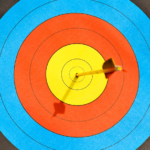A willingness to ask tough questions about what defines a life well-lived is the key to well-being, argues Bernard Reginster.
Every January, millions of people set new goals in hopes of improving their lives. Driven to boost their health and happiness, they scour books and news articles full of meditation tips, exercise routines, and diet ideas.
For those who make New Year’s resolutions, doctors and psychologists have become the ultimate experts. But whither the philosopher—that rare breed of person who spends all day, every day, contemplating the meaning of life?
Reginster, a professor of philosophy at Brown University, believes in asking the hard questions: What is the mark of a life well-lived? What is the difference between a happy life and a good life? He argues that if people can’t answer these questions for themselves, they’re unlikely to find satisfaction in any of those scientist-approved New Year’s resolutions.
After all, how can someone find happiness in any new habit if they haven’t yet defined what “happiness” actually means to them?
“If you believe that what makes your life good is to experience as much pleasure as possible, and you want to know how to maximize pleasure, there’s no question that you will want to turn to research by empirical psychologists,” Reginster says.
“But that question comes downstream from the fundamental questions of whether a pleasant life is a good life, and what ‘good’ even means—and those are questions for philosophers,” he says.
Here, Reginster answers questions about his own background studying the philosophy of well-being, why psychological studies can miss the mark in identifying the key to happiness, and how philosophy could help people discover what’s most important in life:
Author Profile
- "Center" Bias Rating
- Futurity is a nonprofit website that aggregates news articles about scientific research conducted at prominent universities in the United States, the United Kingdom, Canada, Europe, Asia, and Australia. It is hosted and edited by the University of Rochester.
Latest entries
 ScienceSeptember 18, 2024Breast milk antibodies protect against rotavirus
ScienceSeptember 18, 2024Breast milk antibodies protect against rotavirus ScienceSeptember 18, 2024Low levels of 1 mineral can make IBD worse
ScienceSeptember 18, 2024Low levels of 1 mineral can make IBD worse ScienceSeptember 17, 2024Nanoparticles deliver drugs to kill cancer cells in mice
ScienceSeptember 17, 2024Nanoparticles deliver drugs to kill cancer cells in mice ScienceSeptember 17, 2024Stretchy wearable device turns body heat into power
ScienceSeptember 17, 2024Stretchy wearable device turns body heat into power

